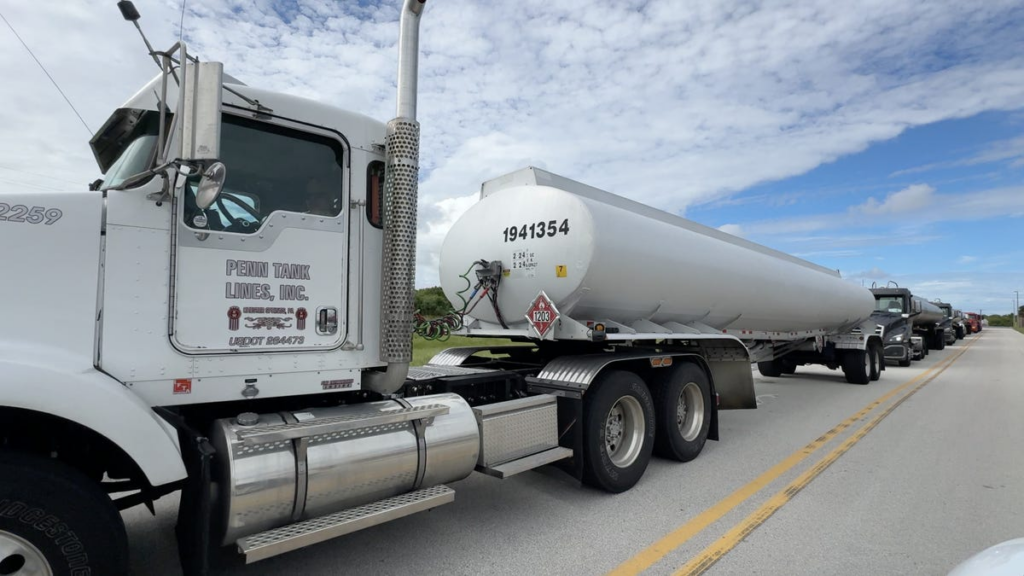[ad_1]
Port Canaveral is working with the Florida Department of Transportation to study whether a fuel pipeline between the port and Orlando International Airport would be feasible.
A similar pipeline now connects Port Tampa Bay and Orlando International.
By having a second pipeline, it would help assure fuel supplies to the airport and other parts of Central Florida after hurricanes and other natural disasters.
Because Orlando International gets fuel by pipeline only from the west coast of Florida, “they can get dangerously low” for their post-hurricane supply, Port Canaveral CEO John Murray said.
“As the airport gets bigger, they need to have an assured supply of fuel,” Murray said, as he discussed the advantages of such a pipeline during his recent State of the Port presentation. “So a pipeline is a potential opportunity that we’re all exploring with the Department of Transportation. It would take trucks off the road and provide more assured access in Orlando. So there are some very, very good reasons to pursue that.”
Petroleum is port’s largest commodity
Petroleum is the largest cargo commodity coming into the port, with about 3 million tons expected in the current budget year, representing about 48% of total cargo tonnage.
Within the petroleum sector, regular gasoline accounts for the largest share coming into the port, at 37% of the total. Others include diesel (17%), heavy fuel oil used by ships (16%), jet fuel (16%), premium gasoline (5%), ethanol (5%), gas blend (3%) and liquid asphalt (1%).
Seaport Canaveral and TransMontaigne Partners are the two fuel operators distributing these products from Port Canaveral.
The proposed pipeline would carry multiple fuel products, likely including jet fuel, gasoline and possibly others. The proposal calls for the pipeline to follow near the route of State Road 528 from the port to the airport.
Feasibility study findings due March 31
Details about the cost of the pipeline and its timeline for construction would be part of the feasibility study, with preliminary findings due out by March 31.
Funding could come from the federal or state government or a private company that could operate the pipeline — or a combination of those entities. The port and the airport are not expect to be part of the funding components.
In a summary of the pipeline proposal, the Florida Department of Transportation’s regional office said the Greater Orlando Aviation Authority has been working for some time on a master plan for an east airfield fuel farm.
FDOT said the pipeline to Port Canaveral “is necessary to support this plan, offering a dual-coast supply that would reduce the likelihood of weather related fuel shortages”
It said Port Canaveral has the infrastructure to support this, including 24 storage tanks and around-the-clock operations with 10 truck bays.
Dave Berman is business editor at FLORIDA TODAY. Contact Berman at dberman@floridatoday.com, on X at @bydaveberman and on Facebook at www.facebook.com/dave.berman.54
[ad_2]
Source link

